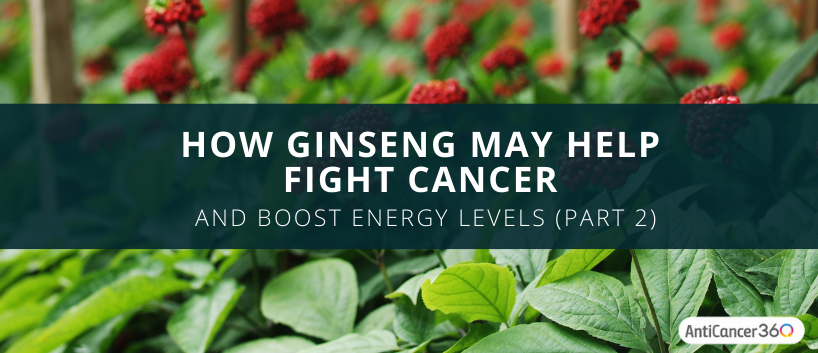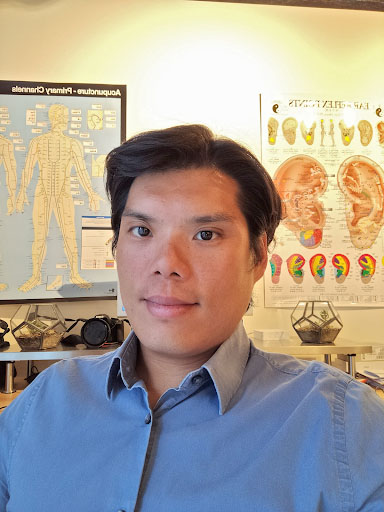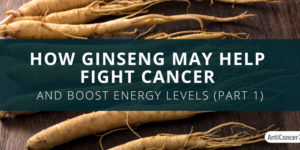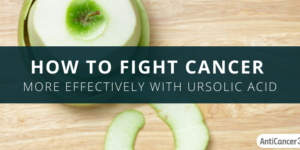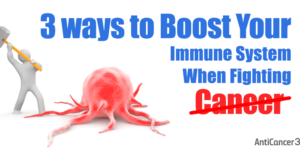Choosing to fight cancer in every direction involves multiple strategies that can help strengthen your body while weakening the cancer cells. One strategy to consider is adding natural supplements that have evidence-supported anticancer benefits, including ginseng.
So, in Part 1 of this series, we looked at what ginseng is, and how it can weaken cancer cells. We saw how ginseng impairs cancer cell metabolism through different mechanisms. Without metabolic functions to efficiently convert nutrients (like sugar, fat, and protein) into energy, cancer cells can’t continue growing.
We also covered how to take ginseng (common dosage, possible precautions, and interactions).
Now we’ll look at how ginseng can interfere with a tumor-promoting process known as autophagy (“self-eating”) and the research behind this.
Read on to learn more about ginseng’s anticancer benefits in today’s post.
What is Ginseng?
To quickly review what we learned in Part 1, ginseng is a plant, and its roots contain substances known as ginsenosides. There are two main ginseng species used for their medicinal benefits: Panax ginseng and American ginseng.
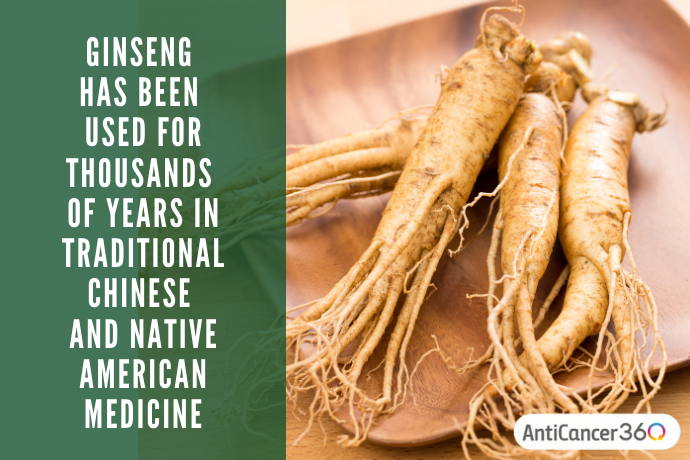
Today, ginseng is commonly found in many energy drinks. But some other ingredients (added sugar, caffeine, artificial sweeteners) in these beverages have risks that often outweigh any health benefits [1].
Ginseng has become an interesting topic for cancer researchers because of its adaptogen ability. An adaptogen is defined as [2]:
“a plant extract that is held to increase the body’s ability to resist the damaging effects of stress and promote or restore normal physiological functioning.”
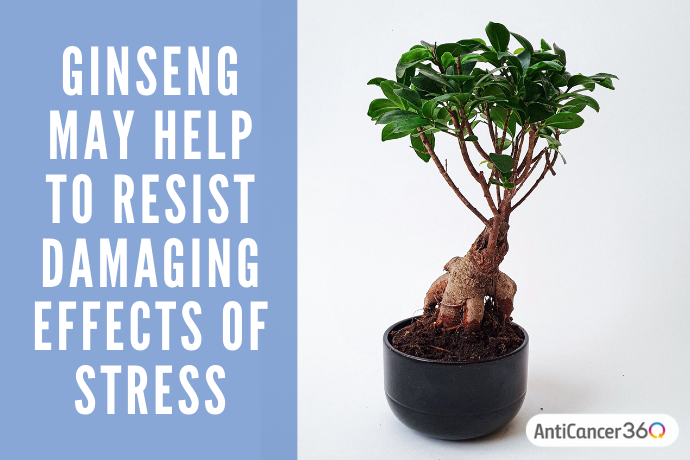
In Part 1, we looked at the many ways that ginseng may exert anticancer actions on cancer signalling processes and how a ginseng supplement may enhance your overall treatment program.
Now we’ll go on to look at how this natural compound may also interrupt a cell renewal process called autophagy.
Ginseng Can Interfere with Tumor-Promoting Autophagy
Recent research shows that ginseng may play a role in autophagy, a cell renewal process. “Auto” means self, and “-phagy” means eat. So the literal meaning of autophagy is “self-eating.”
Autophagy is the body’s way of recycling old, damaged cells into new, healthy cells. This process breaks down old or damaged cells into pieces. Then the salvaged parts are used to construct new cells [3].
In some situations, autophagy seems to be protective and acts to suppress (stop) tumor growth. The body’s healthy cells sometimes remove cancerous cells through autophagy.
However, with cancer, autophagy seems to be a double-edged sword. Autophagy can also promote tumor growth by preventing cancer cells from dying. Cancer cells may use autophagy to salvage cell parts, including proteins, or break them down into amino acids, and use them as energy sources. As well-stated by researchers Hanahan and Weinberg:
“Cancer is a multifaceted complex disease characterized by several defining properties, including avoidance of cell death.” [4],[5]
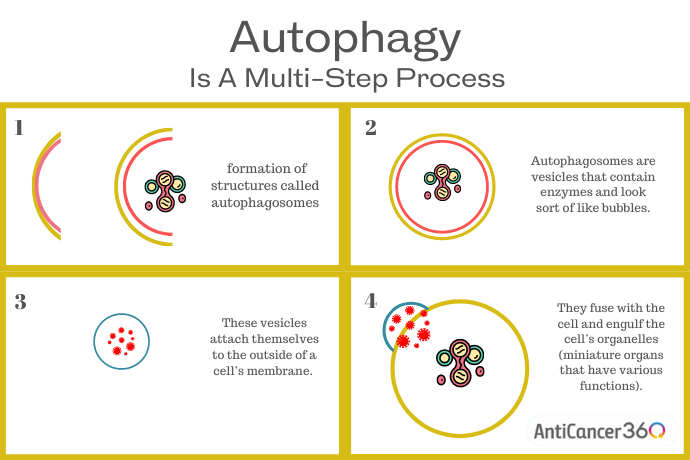
Autophagy is a multi-step process. The first step is the formation of structures called autophagosomes. Autophagosomes are vesicles that contain enzymes and look sort of like bubbles. These vesicles attach themselves to the outside of a cell’s membrane. They fuse with the cell and engulf the cell’s organelles (miniature organs that have various functions).
Next, the autophagosome’s enzymes digest the organelles into pieces. Lastly, these pieces are transported to where they can be used as replacement parts in cancer cells or get converted into energy. So, in this way, autophagy could help tumors grow and spread.
Research has shown that some drugs and herbs can block specific steps in the pro-cancer autophagy process.
Chloroquine is a drug initially discovered to treat malaria. It is now mainly used to treat autoimmune diseases such as rheumatoid arthritis. Chloroquine is a weak base, and so it can raise the pH of cellular compartments. By increasing the pH, this drug blocks the autophagy enzymes that engulf and digest the cell [6].
The downside of chloroquine is that, like all medications, it carries risks of side effects. Damage to the liver, vision problems, and hearing loss have been reported with chloroquine, in addition to its common side effects of headache and stomach upset [7].
Some studies have shown that ginseng demonstrates anticancer action by interfering with cancer cell autophagy. A ginseng extract component, ginsenoside, has been shown to block autophagosomes from fusing with esophageal cancer cells. Its mechanism seems to be similar to that of chloroquine [8]. And, ginseng may have a lower risk of serious side effects than chloroquine.
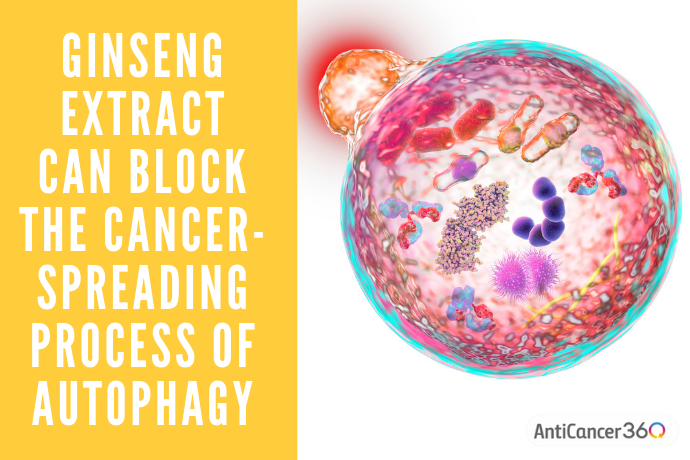
In this 2016 laboratory study, scientists studied the effects of ginsenoside on cancer cells that developed resistance to 5-fluorouracil (5FU), a standard chemotherapy drug. When the cells were exposed to 5FU, the drug killed few cells. When the scientists used the combination of ginsenoside and 5FU to treat the same cells, the chemotherapy drug’s cell-killing action was significantly enhanced [9].
Upon further analysis, the researchers revealed that ginseng accomplished this by reducing the cancer cells’ ability to use autophagy. Ginseng seemed to block the autophagosome from fusing with the esophageal cancer cells. This stopped the cancer cells from using salvaged cell parts to derive energy and form new cancer cells [10].
Overall, this study shows the anticancer potential for ginseng. Here, a ginseng extract seemed to block autophagy, which led to enhanced cytotoxic effects when combined with 5FU. And this was in cancer cells that were previously resistant to this chemotherapy drug. Although human studies are needed, you can see the clear anticancer potential of ginseng.
Aggressive Integrative Approach with Ginseng
Next, we’ll look at some additional scientific research that employed an integrated approach to fighting cancer with ginseng. Interestingly, ginseng is frequently incorporated into “energy drinks” and related products. While you’ll need to be careful to avoid choosing products that have excessive sugars or caffeine, there’s a valid reason why ginseng is included.
Many studies have supported the energy-boosting effects of ginseng supplements [11]. And, of importance to us, some studies have shown that ginseng could help support and energize the human body while fighting cancer.
Ginseng May Help Improve Cancer-Related Fatigue
Some research also shows that taking ginseng supplements may also help with cancer-related fatigue. Cancer-related fatigue affects more than 80% of people with cancer. It’s an extreme lack of energy that comes and goes, despite getting adequate sleep. Some people have to muster up intense effort to do routine things like walk to the bathroom or eat a meal [12].
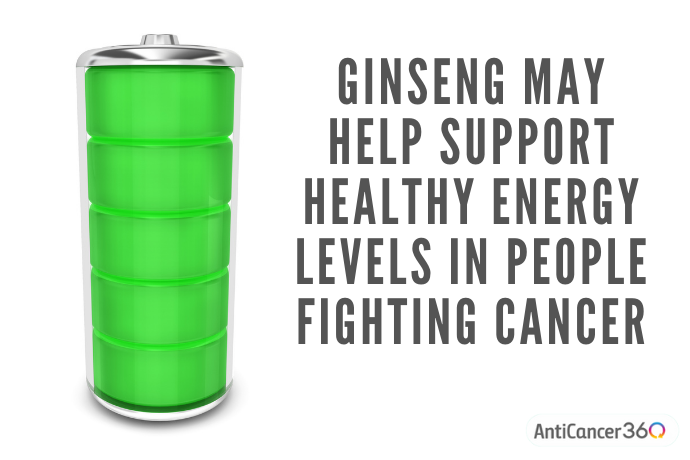
Finding a low-risk option that could improve cancer-related fatigue would help so many people improve their quality of life as they fight cancer. Taking a ginseng supplement may be one of these options.
A recent clinical trial looked at ginseng’s effects on fatigue in people with colorectal cancer. Over 400 were randomly divided into two groups. One group took Panax ginseng 2000 mg per day, and the other group took a placebo. (A placebo is a treatment that contains no active ingredients).
No one in the study knew if they were getting ginseng or getting a placebo. Both groups were also receiving a chemotherapy regimen known as mFOLFOX-6. It contains oxaliplatin plus leucovorin plus 5-fluorouracil (5FU) [13].
After 16 weeks, both groups took surveys to evaluate their fatigue levels. When the researchers analyzed the results, they found that the group who took Panax ginseng had more improvement in their fatigue compared to the group who took a placebo. The group who took Panax ginseng reported having less fatigue, improved walking ability, and improved mood [14].
Some studies have found similar results with American ginseng supplements [15]. Other studies did not find that ginseng made any difference at all. But, there hasn’t been any evidence that this natural supplement made fatigue levels worse.
Overall, our view is that ginseng is a very low-risk supplement for most people and may be a useful tool in fighting cancer from every angle.
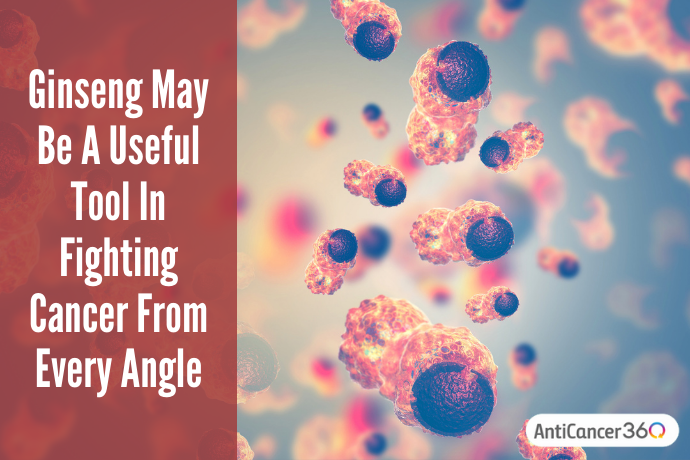
More research would be necessary to determine the mechanisms responsible for exactly how ginseng supports these outcomes. But, depending on your unique situation, ginseng may be a very beneficial addition to your overall cancer program.
How To Use Ginseng: Dosages, Side Effects, and Interactions
Will Ginseng Strengthen Your Personal Battle with Cancer?
Ultimately, you can see that there can be many potential benefits to adding a natural dietary supplement like ginseng to your overall anticancer program.
When using the “Aggressive Integrative Approach” to cancer, the goal is to fight cancer from every possible angle. This approach includes integrating natural supplements to fight cancer based on available evidence, despite limited human data, and doing it in a safe way that won’t interfere with your oncology treatments.
So now, what are your thoughts about incorporating ginseng into your plan? What are you doing to support your body? Are you currently taking ginseng or any other natural supplements? We would love to hear from you. Feel free to let us know in the comments below!
If you’re interested in using an Aggressive Integrative Approach for your case… you can learn more about our program by watching one of our free online webinars.
Please discuss the risk-versus-benefit potential with your healthcare professional before starting any natural supplement, including ginseng.
Are You A Good Candidate For Our Program?
If you’d like to learn more about the AntiCancer360 approach and see if we can help you… please watch our free online webinar to learn more about our approach. Then at the end of the webinar, you’ll be able to schedule a free call with us so that we can discuss your case in more detail
Dr. Patricia Weiser is one of AntiCancer360’s consultant pharmacists, science advisors, and medical writers. Her expertise helps us create safe herbal and supplement combinations and avoid potential drug interactions.
Patricia is a graduate of the University of Pittsburgh and a licensed pharmacist. She has clinical experience in both community and hospital pharmacy. She is passionate about integrative and preventative care and strives to empower her patients to take an active role in their health.

